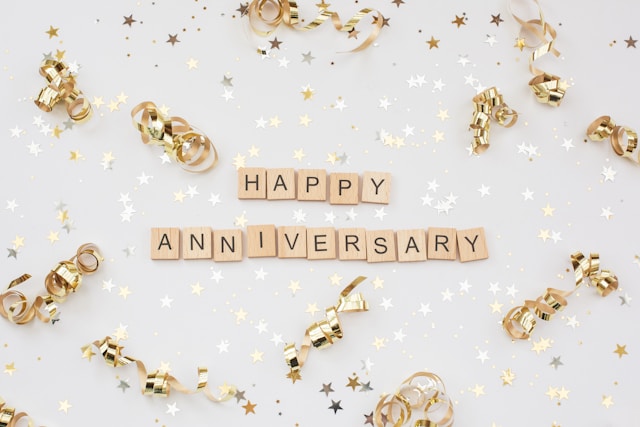When I first learned the term Codependency, I quickly decided I didn’t fit the description. After all, I had a sense of self, my life didn’t revolve around my husband, and I wasn’t weak. Although I kept hearing Codependency described as a “sickness,” I didn’t feel I was sick; I married a sick man. I resented having a label because of my husband’s poor choices. I was healing from the pain of my husband’s addiction and nothing else.
However, my therapist encouraged me to learn more about Codependency and see if I could identify with any part of the Codependency description. I can’t tell you how many times she talked about watching the partners of sex addicts struggle with the blame and judgment they put on themselves for their significant other’s choices as if they could have controlled the outcome. (a.k.a. Codependency).
Although reluctant, I joined my therapist’s Codependency support group. I wanted to learn more about Codependency, explore whether I had codependent traits, and manage them differently with healthier choices. I knew my character defects didn’t cause my husband’s betrayal, they may have enabled his behavior, but I didn’t think that made me codependent. I wasn’t going to take the blame for my husband’s addiction.
I also read books and articles about Codependency in my quest to learn more and to figure out if Codependency applied to me. For example, Melody Beattie, author of Codependent No More, defined a codependent as “a person who has let another person’s behavior affect him or her, and who is obsessed with controlling that person’s behavior.” I read that definition and thought to myself; I didn’t let his behavior affect me. It did affect me, and I never obsessed over my husband’s behavior. I couldn’t quite align with Beattie’s definition at the time.
Pia Melody, author of Facing Codependence defined Codependency as a developmental disorder of immaturity caused by childhood relational trauma with five primary symptoms:
- difficulty establishing and maintaining healthy boundaries
- difficulty owning one’s reality
- difficulty accessing and meeting one’s own needs
- difficulty expressing oneself appropriately
- difficulty esteeming oneself from within
I read Melody’s definition and thought I probably should have created boundaries around the porn, but I wasn’t prepared to leave him. I figured he wasn’t touching anyone, and he wasn’t watching it in front of the kids, and it wasn’t child pornography, so I didn’t see a need to make boundaries. I could agree that I had difficulty owning my reality in hindsight, and that was the only part of Melody’s definition I could relate to, which wasn’t enough for me to want to tattoo “I am a codependent” on my forehead.
Beattie, Melody, and the Codependency group I attended provided thought-provoking definitions of Codependency, but I still struggled with which part of the definitions applied to me. If I could only relate to a tiny piece of the definitions, did I do so that make me a codependent? I started telling myself If I am a codependent, I am a mild one because I really couldn’t relate to much of what I was reading and hearing.
A few years later, I had two conversations that lit a light bulb off in my head, finally clarifying the role Codependency played in my unhealthy coping skills. I started seeing a different therapist after my first one retired. The therapist told me I was over-functioning which is a form of Codependency. I thought about the years in my marriage when my first response to questionable things was to question what my husband was missing from me to cause him to act out. I even took a strip-dancing class and got a Brazilian wax a couple of times (I am a total wimp when it comes to pain), not because I wanted to but because I thought these things would make my husband watch less porn. I stuffed my thoughts and uneasiness caused by unacceptable behavior at the expense of my sexual self-esteem, ability to trust myself, and living authentically. I did these things because I thought I was part of the problem. I did these things because I didn’t know what I was dealing with- I over-functioned.
I could also see “over-functioning” in other areas of my life, such as my concern for what people thought of me. I was a stay-at-home mom for several years, struggling to see what I did as valuable compared to working outside the home and bringing home a paycheck. I didn’t want people to think I was an undeserving, lazy woman sitting at home. I found myself committing to things I didn’t want to do because I thought that was what I was supposed to do. I judged myself based on my kids’ performance in school. I rarely gave declined requests to volunteer for anything without providing a lengthy explanation first. I rarely checked in with myself or God before agreeing to commitments or making important decisions.
A dear friend listened to me explain that I wasn’t meek; I had a strong sense of self and spoke my mind confidently. She agreed with my description of myself, but she pointed out that I still accepted unacceptable behavior at my expense despite my strong personality. I realized it didn’t matter if my character was fiery or soft if my temperament was one of strength or weakness; I still accepted unacceptable behavior at my own expense, which qualifies my behavior as codependent. This realization was sickening but a necessary one. I could now see telling myself, “If I just did – things might change” to eventually telling myself “I don’t care, he can his porn” were all unhealthy coping skills born out of Codependency, not strength. I either tried to control the situation or deny how my husband’s choices’ impacted me.
Recognizing how Codependency impacted my unhealthy ways of dealing with my husband’s behavior and other aspects of my life gave me a sense of peace. I was no longer irritated, frustrated, and confused. I was willing to accept that I could have been dealing with things in my life differently. Codependency and other characteristics contributed to my unhealthy coping skills.
However, I wasn’t prepared to call myself “sick” because I trusted my husband at the beginning of my marriage and made decisions based on half-truths when questionable things in my marriage occurred. Sex addiction was not my first answer to my husband’s behavior; I didn’t even know what sex addiction was, so how could I blame myself for what I didn’t know. When a person is in a relationship with someone they trust, they tend to give more of themselves because of the relationship, a natural response to someone you love, giving them the benefit of the doubt.
My reality was that my husband made a mistake when he cheated on me, which he apologized for; we both went to individual and marriage counseling. I could see him actively pursuing the marriage, but he dabbled in porn. There wasn’t anything else visible to me at the time to know the depth and longevity of this issue until he gave me a disclosure.
Most partners don’t go to “sex addiction” as the first answer to questionable problems in the marriage when challenges first occur. Most of us don’t even know what sex addiction is; even if we’ve heard of the term, we don’t understand it until we must. But isn’t that the point? I thought I was dealing with something the size of a football, not a whale.
This is what I have concluded for myself:
When my husband was in active addiction:
- I didn’t listen to that uneasiness inside of myself.
- I did express to my husband how his porn viewing made me feel, but I wasn’t ready to create any boundaries for myself or him.
- I thought by accepting porn use early in our marriage; I was controlling the likelihood of infidelity.
- I thought I could control the outcome by shaming, cussing, or ignoring my husband.
- I thought I could punish or control my husband when I caught him watching porn by withholding holding sex from him.
- Accepting the porn cost me my sexual self-esteem.
- I was becoming a make-due woman and didn’t even know it
- I forgave my husband for the first affair because I rationalized the situation.
- I always thought about pleasing my husband sexually instead of focusing on what satisfied me sexually. Sex was always about performing to his satisfaction.
This is how Codependency manifested in other aspects of my life:
- I wanted to please my kids at my own expense.
- I cared too much about what people thought about me.
- I didn’t respond “no” without a lengthy explanation first.
- I committed to requests without checking in with myself.
- I operated as a human “doing” instead of a “human being.”
- My boundaries with my children wavered too much
- I wasn’t always truly authentic in situations due to fear of being judged
Current codependency challenges I occasionally wrestle with:
- Concern about what people will think once I publicly discuss this issue.
- I fight the urge not to give a long explanation if my answer to a request is “no”.
- Turning in expenses for a program I facilitate through my church, knowing the church doesn’t mind reimbursing me.
- Recognizing I can lean back into my marriage without going through a lengthy list of things to check off first, allowing myself to explore the possibility of a better chapter of our marriage. Reminding myself my husband has my boundaries, and I know what I will do if he breaks them.
- Concern over what my children will think once they know everything
- Sometimes I do too much for my children and end up regretting it
Now, I know my history with Codependency, I know when I am most vulnerable to it, and I live in Codependency awareness to avoid the pitfalls.
I think as women, we are all a little codependent. Most women care for and do for others at their own expense out of expectation. We are challenged as caregivers of any kind to be giving of ourselves to those in need. However, I believe there is a time when this belief becomes unhealthy for the people we care for and ourselves.
Some may disagree with me, but I believe a person may not have an ounce of Codependency in themselves but still end up in a relationship with a sex addict. Furthermore, not every woman has signs his or her significant other is in active addiction; therefore, they can’t be accused of accepting unacceptable behavior. Unfortunately, this is precisely why many experience signs of PTSD because they are completely blindsided. Betrayal trauma is the first issue at hand in these situations, not Codependency. I always say I was a trauma victim, and part of my healing was examining how Codependency played a role in my acceptance of unacceptable behavior. However, it wasn’t the almighty answer to the problem, and it still isn’t.
Don’t get me wrong; I do respect the power of Codependency. I have spent years listening to women and men discuss their struggles with Codependency, and I have also seen them get healthier. They find their voice, establish boundaries with others, decrease their controlling behaviors, and do things differently. Some of these women and men would say approaching Codependency as a sickness is what they needed for their healing, which helped them. However, some are more codependent than others; therefore, different approaches work for different people; so everyone has to dance their Codependency dance to reach clarity for themselves.
There is information available to help you explore Codependency to see if this is part of your story or not. I encourage you to get clear with yourself regarding Codependency if you haven’t, even if that means you say, “I am not codependent and never have been.” or you say, “I am extremely codependent, and I need help!” Regardless of the answer, getting it is part of your healing process.
I will post some resources to help you further understand how codependency may or may not manifest in your life.
#BetrayedNotBroken




